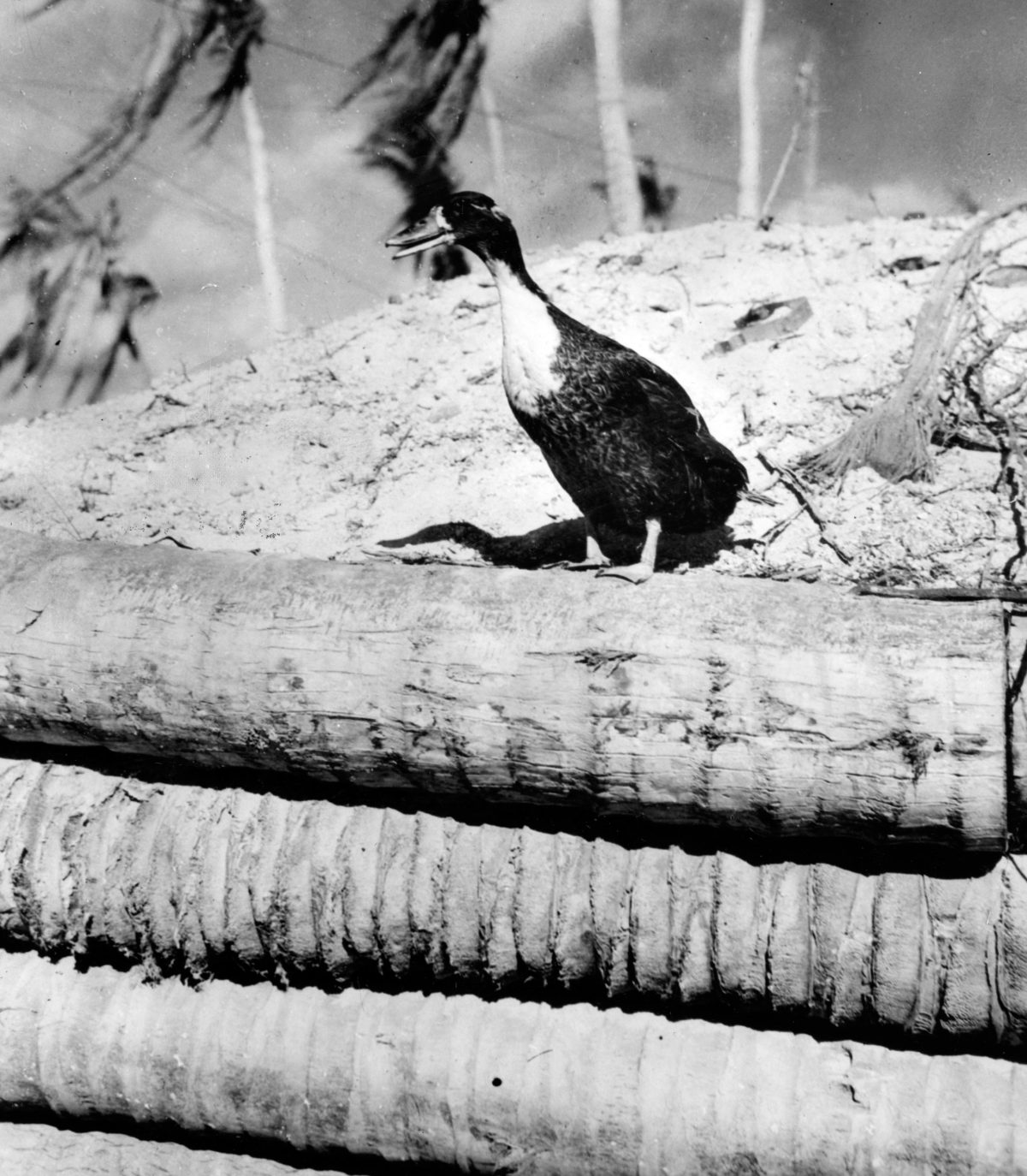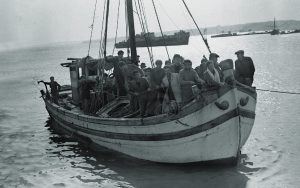On Nov. 20, 1943, 18,000 Marines were met with withering fire, poured out by elite troops of the Imperial Navy’s Special Naval Landing Force.
The attack on Betio, the largest and southernmost island in the Tarawa atoll, required a direct assault on the beachheads by U.S. Marines.
On that day, alongside those Marines clutching the beachhead amid a lethal hailstorm of mortars, machine gun and rifle fire, was a duck.
Won in a raffle at a New Zealand pub by Sgt. Francis “Pappy” Fagan, the duck was given the rank of sergeant and named Siwash after Sgt. Jack “Siwash” Cornelius of Skagit County, Washington. According to the Marine Corps Chevron, Cornelius acquired the nickname due to it sounding similar to his home county’s name. (Note, Siwash is a derogatory term for Native Americans in the Pacific Northwest, and as such, the name “Siwash” will be replaced simply by “duck” in this story.)
GET HISTORY’S GREATEST TALES—RIGHT IN YOUR INBOX
Subscribe to our HistoryNet Now! newsletter for the best of the past, delivered every Wednesday.
Becoming the 2nd Marine Division’s unofficial mascot, the duck followed Fagan everywhere he went, developing a penchant for guzzling beer — just like her owner.
“Siwash just can’t pass up a free drink” Fagan told the Pittsburgh Post-Gazette in 1944. “A long one and a short one is her limit, but she doesn’t know it. She won’t touch draft beer though. And it’s got to be warm beer. The way it was in New Zealand.”
While the “Devil duck” was beloved by her men, it was her actions on Tarawa on the second day of the invasion that cemented her place in Marine Corps lore.
By the end of the first day, the Marines had a tenuous hold on all three landing zones — designated Red 1, Red 2 and Red 3. From this precarious position, General Julian Smith radioed General Holland Smith midafternoon stating: “Successful landings on Beaches Red 2 and 3. Toehold on Red 1. The situation is in doubt.”
Corralled onto the narrow beaches, no units had penetrated more than 70 yards inshore and by nightfall. Being driven back into the sea was a legitimate threat.
Protected by coral reefs, the flat, small island was one of the most heavily fortified in the Pacific, and because of the island’s geography, the nearly 5,000 Marines would have no immediate room to maneuver.
For the duck, however, the situation was never in doubt. Channeling Col. David Shoup report —“Casualties many; percentage of dead not known; combat efficiency: We are winning” — the duck reportedly locked eyes with a Japanese rooster and took the enemy encounter into her own webbed feet.
“The rooster didn’t have a chance,” Fagan later related to the St. Louis Post-Dispatch. “Siwash whipped him and chased him 30 feet up the beach.”
While there was initial talk among Marines of rewarding the duck with a Purple Heart, she was eventually cited for bravery (the Marines initially believed she was a he until the duck began to lay eggs):
For courageous action and wounds received on Tarawa, in the Gilbert Islands, November 1943. With utter disregard for his own personal safety, Siwash, upon reaching the beach, without hesitation engaged the enemy in fierce combat, namely, one rooster of Japanese ancestry, and though wounded on the head by repeated pecks, he soon routed the opposition. He refused medical aid until all wounded members of his section had been taken care of.
From there, the duck served during the Battle of Saipan — this time from the safety of a destroyer — and the Battle of Tinian.
But they couldn’t keep a good duck down and at Tinian, “Siwash” “hit the beach on D-Day and personally captured a tiny Jap duck,” TIME reported in 1944. After Tinian, however, the duck’s war was over.
Upon returning home, the Devil duck was given a hero’s welcome before parting with Fagan to live out the rest of her days at Chicago’s Lincoln Park Zoo.
She stayed there until the hard drinking duck passed away from liver disease in 1954.
Her body was later stuffed and presented to the National Museum of the Marine Corps in Triangle, Virginia.
Rah.





